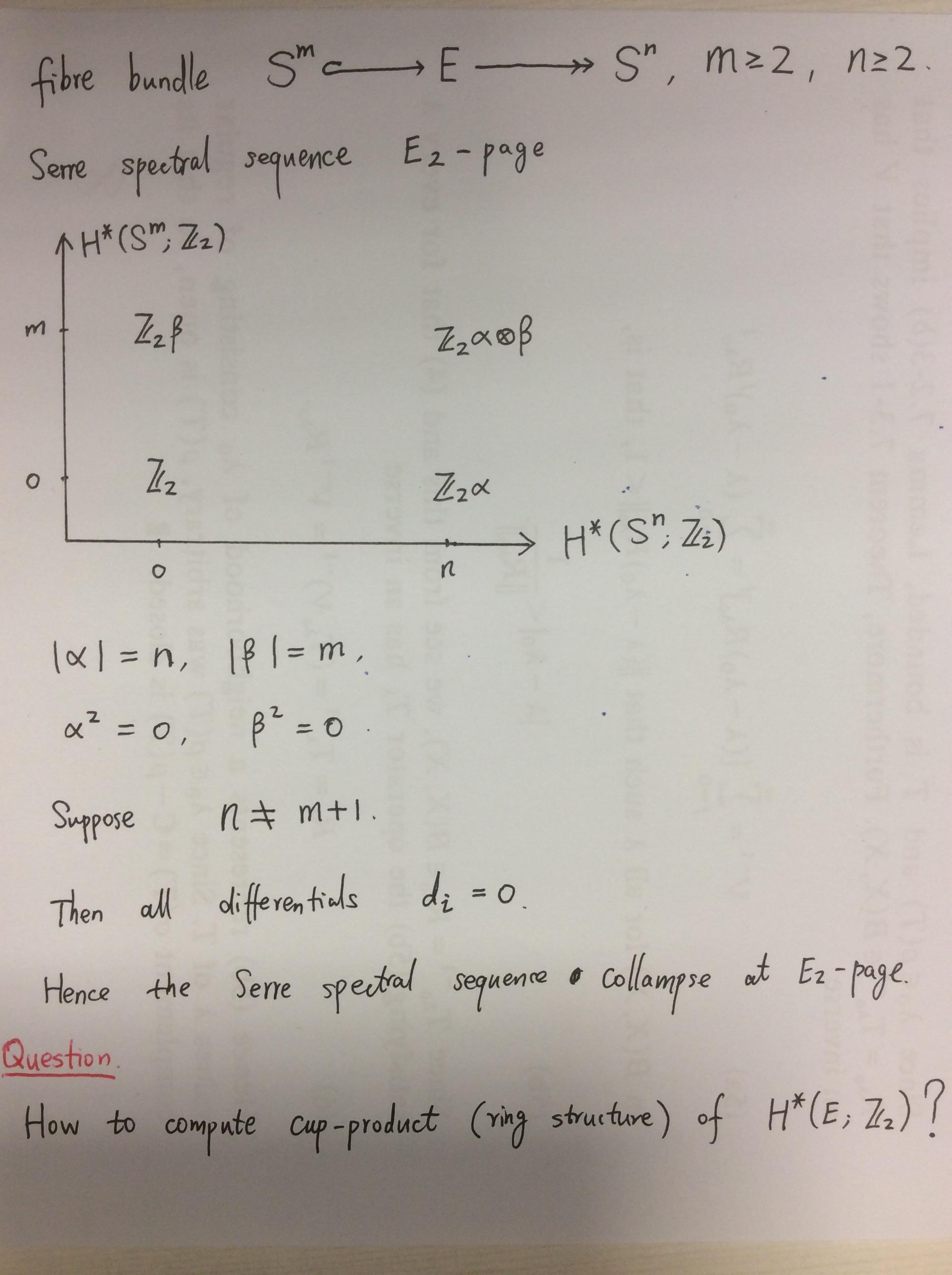A good example showing the answer to question 1 is no is the case of the projectivization of a complex vector bundle $V$ over $B$. This has $F=\mathbb C P^{n-1}$, and it is a theorem (see e.g. Hatcher, Vector bundles and K-Theory) that all differentials vanish or equivalently $H^*E$ is a free $H^*B$-module on generators $1,x,\dots x^{n-1}$, where $x$ restricts to a generator of $H^2E$. However, one has the equation
$$\sum_{i=0}^n c_i(V)x^{n-i}=0,$$
where $c_i(V)$ are the Chern classes, not $x^n=0$.
So in general: the thing one knows is the Leray-Hirsch theorem: $H^*E$ is a free $H^*B$-module on generators $x_i$ which map to generators $y_i$ of $H^*F$.
If $y_iy_j=y_k$, then one only knows that $x_ix_j=x_k$ modulo terms of higher filtration.

